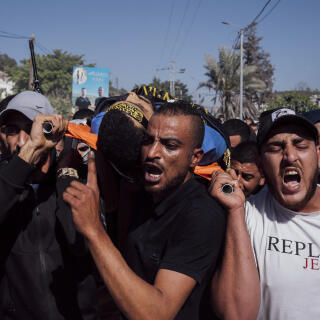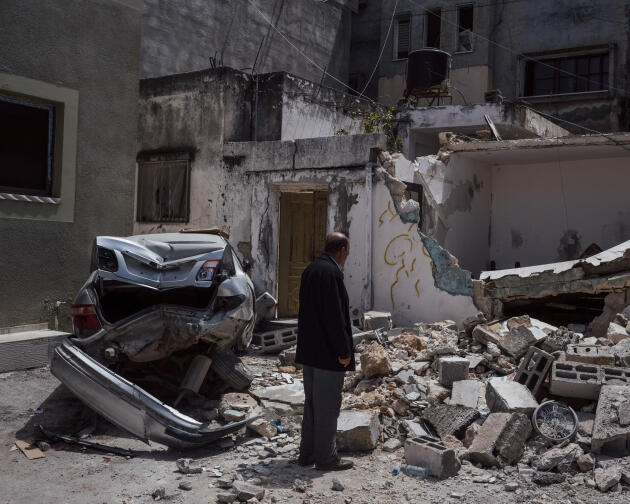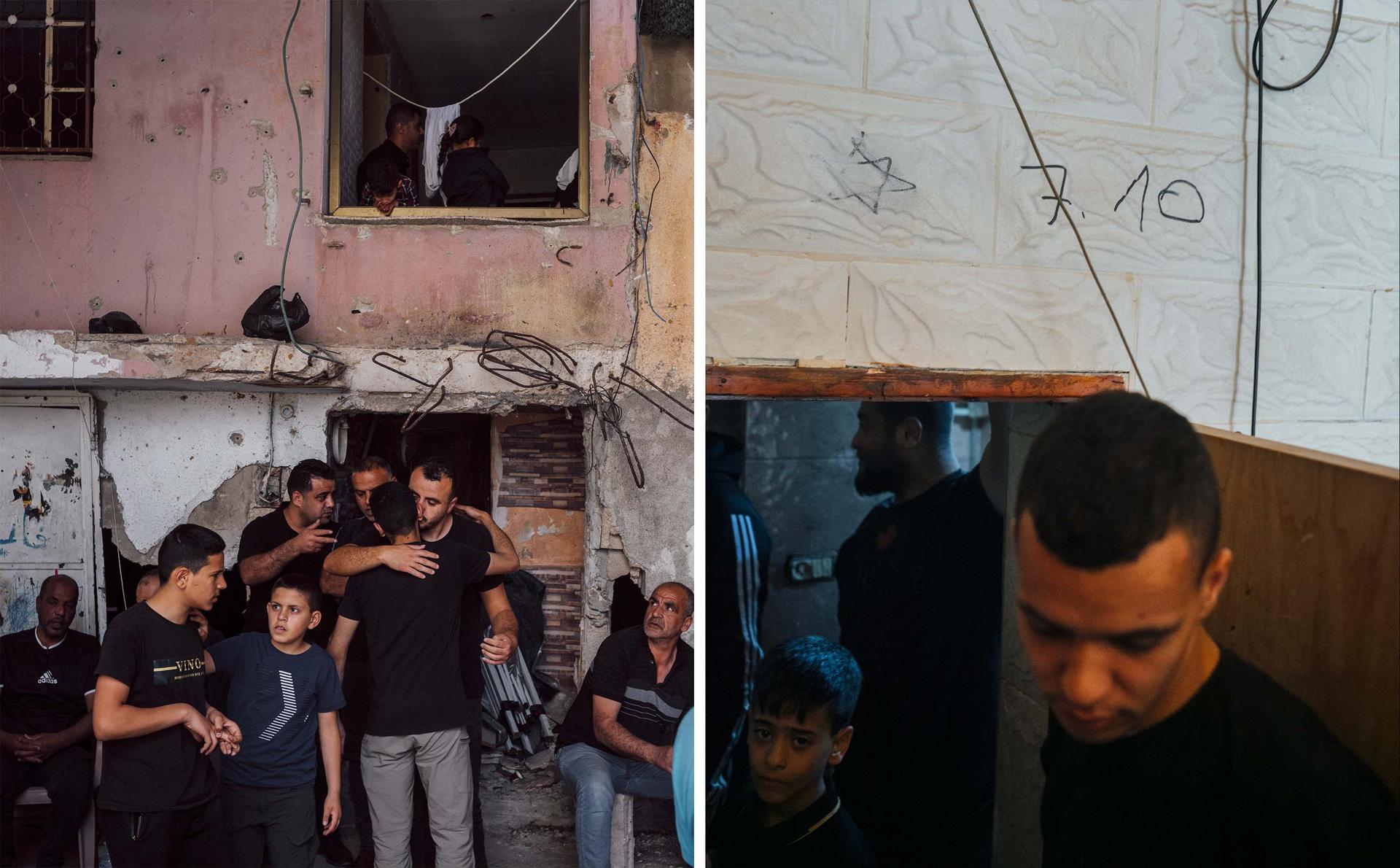


Israeli army deploys brutal methods against Palestinian armed groups in West Bank
FeatureAn Israeli raid on the Nur Shams refugee camp in the north of the occupied territory lasted over 50 hours last week. Thirteen Palestinians, including 10 fighters, were killed, and infrastructure destroyed.
One body followed another, carried at arm's length by men who reached the cemetery at a brisk pace, crossing the main street that had become a wide mud alley after the passage of Israeli bulldozers, at the entrance to the Nur Shams refugee camp in the northern West Bank. The bodies of the fighters had been covered with Hamas or Islamic Jihad flags; their passage was greeted by salvos of gunfire from men with masked faces. Alongside the funeral procession, Palestinian civil security teams were busy clearing away the scars of the Israeli raid, connecting electrical cables here and drains there.

On Thursday, April 18, the Israeli army cut off the water and electricity supplies and invaded the narrow alleys of Nur Shams, on the edge of the town of Tulkarem, at the end of the day. The raid lasted over 50 hours; bulldozers and special forces withdrew on Saturday evening.
According to the Palestinian Red Crescent, 14 people were killed, including two teenagers –one of whom was actually shot at in another Tulkarem camp. Ten of them were combatants. The Israeli army claims to have killed them "in close-quarters combat, [to have] apprehended 15 wanted suspects, seized numerous weapons and destroyed dozens of explosive devices." Nine soldiers and a border police officer were wounded. According to local residents, two other Palestinians died during the raid, including one man who succumbed to a heart attack.
On Sunday, faces were expressionless, still in shock. Israeli soldiers regularly make brutal incursions, but this raid was the most violent the camp has seen since 2002, according to the Palestinian news agency Wafa. "Why are we the only ones in the camps resisting?" said a young man. Places of daily life were ravaged: shops and restaurants ransacked, the camp club and the center for the disabled razed to the ground.
'Two days and two nights of horror'
In an alleyway a little further on, a pool of blood had not yet been cleaned up. Several bodies had been found there, fighters killed in the house next door, where they had taken refuge in the absence of the owners. Walls and ceilings were riddled with bullet holes. In the room where the armed Palestinians were targeted, above the door, a soldier had drawn a Star of David next to a date: "7.10," October 7, 2023, the day of the Hamas attack on Israel, which killed nearly 1,200 people. The word neqamah, "vengeance" in Hebrew, was written in marker on one of the cabinets.

A neighbor, Yasser Abu Muamar, approached shyly, shoulders hunched, anxious. On Friday, during the raid, a Palestinian arrived home wounded. The family gave him first aid. The next day, soldiers came for him, threatening to blow up the house. The soldiers took the wounded man away and Muamar surrendered, to protect his family. "They hit me on the head with the butt of the rifle," said the 28-year-old Palestinian. In the course of the conversation, he recalled other abuses.
You have 48.35% of this article left to read. The rest is for subscribers only.
